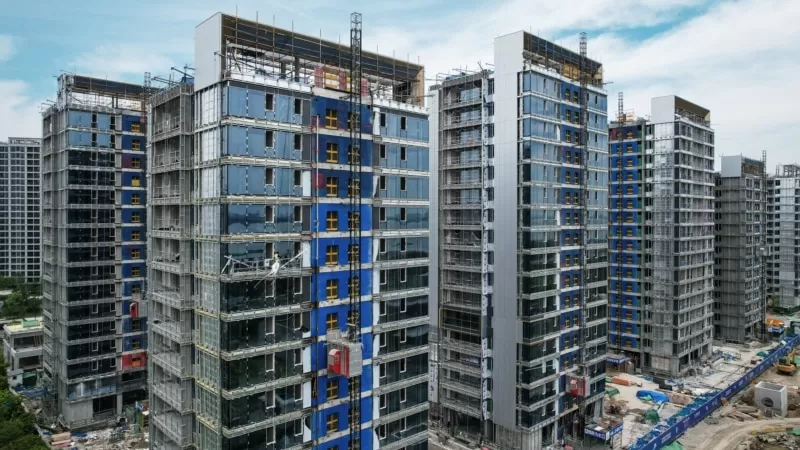Beijing — Two of China’s wealthiest cities, Hangzhou and Xi’an, have made a bold move to boost their property market by lifting all restrictions on buying homes. This comes as part of a growing trend of cities across China reversing policies that were put in place to control soaring housing prices and curb speculation in the real estate market.
The eastern city of Hangzhou, known as a vibrant innovation hub and home to tech giants like Alibaba, made the announcement on Thursday, stating that the decision was made “to promote the stable and healthy development” of the market. With a population of 12.5 million, Hangzhou is one of the most desirable and expensive cities to buy property in China. Alongside this, the northwestern city of Xi’an, with a population of 13 million, also followed suit and abolished all restrictions on buying homes.
The news quickly gained traction on social media, with over 230 million views on Weibo, a popular Chinese platform. However, some netizens expressed doubts about how effective this policy would be in making housing more affordable. “With Hangzhou’s high housing prices, what’s the point of cancelling buying restrictions? I still can’t afford it,” wrote one commenter. Others echoed this sentiment, calling the move “useless” and expressing skepticism about any potential positive impact on the market.
This decision by Hangzhou and Xi’an is just the latest in a string of more than 20 cities that have scrapped home purchase restrictions since the beginning of last year, according to an AFP tally. However, many of the biggest cities like Beijing, Shanghai, and Shenzhen have only partially lifted the restrictions and have not completely abandoned them.
The real estate and construction sector contributes significantly to China’s gross domestic product, but it has been facing unprecedented challenges since 2020. In that year, the Chinese government implemented stricter regulations on developers’ access to credit in an effort to reduce mounting debt levels. As a result, major companies like Evergrande and Country Garden have faced financial crises, and falling housing prices have discouraged consumers from investing in property.
The measures introduced by the central government to support the sector have had little effect so far. Additionally, President Xi Jinping has repeatedly emphasized that “houses are for living in, not for speculation.” This sentiment has been reflected in the government’s policies, with efforts to promote affordable housing and crack down on real estate speculation.
However, the current economic climate has forced authorities to revisit their approach. Last month, the International Monetary Fund (IMF) warned that China’s economic recovery from the pandemic could falter if the property market crisis is not properly addressed. In its World Economic Outlook report, the IMF stated that “without a comprehensive response to the troubled property sector, growth could falter, hurting trading partners.”
The decision by Hangzhou and Xi’an to lift all restrictions on buying homes is seen as a significant step towards addressing the issues in the property market. It shows a growing sense of urgency and willingness to take decisive action in order to support economic growth. This move is also a sign of the Chinese government’s commitment to finding a solution to the ongoing crisis and stabilizing the market.
However, experts are warning that this approach may not be enough to completely solve the issues in the property market. Bill Bishop, publisher of the influential Sinocism newsletter, called the move “a sign of desperation.” He also cautioned that if this policy fails to boost sales, it may lead to further price declines, creating more challenges for both developers and buyers.
In conclusion, the decision by Hangzhou and Xi’an to lift all restrictions on buying homes is a significant and positive step towards tackling the challenges in China’s property market. It reflects the government’s proactive approach in addressing economic concerns and shows a willingness to take bold measures to support growth. While there may be doubts about the effectiveness of this policy, it is a clear indication of the determination to find a solution to the ongoing crisis and ensure a stable and healthy property market for the future.


